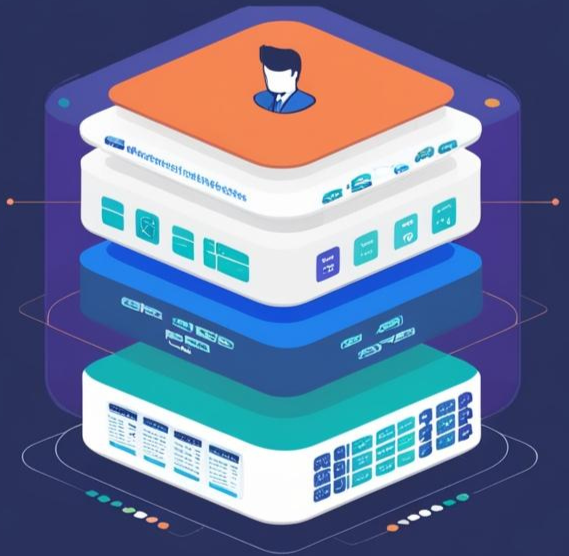Beyond ChatGPT:
Data-driven AI goes far beyond language models like ChatGPT. Learn how AI is evolving into a tool that can model and replicate complex human tasks, and why this matters for industries like construction, food service, and care.
Embedding R&D in Your SME
For small and medium-sized enterprises (SMEs), innovation isn’t just about breakthrough inventions, it’s about staying relevant, solving real problems, and building better products and services. In a fast-moving economy, the businesses that invest in research and development (R&D) are the ones best positioned to adapt, compete, and grow.
Unlocking Innovation:
Innovation drives the UK’s most dynamic small and medium-sized enterprises (SMEs), especially in tech, engineering, and software development. But amid product launches, prototypes, and problem-solving, many businesses overlook a valuable source of funding: the UK government’s R&D tax relief scheme.
AI and the Future of Work
The UK government and major technology firms continue to promote an optimistic vision of artificial intelligence, one in which automation enhances productivity, unlocks economic potential, and liberates workers from mundane tasks. In this narrative, AI is not a job killer, but a catalyst for new roles, enabling more creative, efficient, and inclusive economy.
AI in Public Services
AI promises to modernise the UK’s public sector, from automating routine services to transforming healthcare diagnostics. But the conversation has been dominated by efficiency metrics and budget projections, not ethical consequences or citizen wellbeing.
Copyright and AI – Who Owns the Future of British Media?
The UK government is exploring the creation of a copyright-cleared British media asset training dataset, which could provide AI developers with high-quality content for training models. The outcome of this debate will define not just the future of British creative industries, but also the ethical framework that governs AI development.
Sovereign AI Compute – Smart National Strategy or Government Overreach?
To support its AI ambitions, the UK is considering sovereign AI compute resources—essentially, government-backed AI supercomputing power to reduce reliance on foreign cloud providers.
But is this the best use of resources, or should the UK partner with industry to build AI infrastructure more efficiently?
Bridging the AI Skills Gap
The UK government has set an ambitious goal to train tens of thousands of AI professionals, aiming to build a world-class AI workforce. However, AI talent is in high demand globally, and current training initiatives may not be enough to close the skills gap.
The National Data Library
The UK government’s proposal for a National Data Library (NDL) aims to create a centralised repository of public datasets to support AI research and innovation. The goal is to make high-quality, well-structured data available to businesses, researchers, and developers, accelerating AI advancements across multiple sectors.
AI Growth Zones
One of the headline proposals in the UK’s AI Opportunities Action Plan is the creation of AI Growth Zones (AIGZs) areas where planning rules will be relaxed to fast-track the development of AI data centres and associated infrastructure. The government hopes this will attract investment, support regional development, and reinforce the UK’s AI capabilities.
Breaking Down the UK’s AI Opportunities Action Plan
The UK government has positioned artificial intelligence (AI) as a central pillar of its economic and industrial strategy. Framed as both a growth engine and a national priority, AI is expected to boost productivity, open up new markets, and reshape public services for the digital age.
Choosing the Right AI Deployment Model for Your Business
In Part One, we explored the different AI deployment options, cloud, on-premise, and edge computing, along with their advantages and trade-offs.
AI Deployment Strategies
In Part One, we explore the different approaches to AI deployment, cloud, on-premise, and edge computing, highlighting the key benefits and challenges of each.
Cloud-Based AI Solutions:
In Part 1, we explored the fundamental differences between cloud-based AI and self-hosted AI solutions, outlining the key pros and cons of each approach. Now, in Part 2, we dive deeper into the practical considerations when choosing between these options and provide insights on how to make an informed decision for your business.
Cloud-Based vs. Self-Hosted AI Solutions:
Artificial Intelligence is a transformative tool for businesses, but deploying AI solutions requires careful consideration of infrastructure, cost, and long-term strategy. One of the most critical decisions is choosing between cloud-based AI and self-hosted AI. Each approach offers distinct advantages and drawbacks, depending on your business needs, technical expertise, and budget.
Building AI Capability
Artificial intelligence is no longer a futuristic concept, it is an essential tool that businesses can leverage for efficiency, insight and competitive advantage.
However, building an AI capability requires investment into infrastructure, expertise and strategy. Depending on the type of AI you want to deploy, your business will need to make different considerations.
Identifying an Opportunity
Artificial Intelligence offers businesses powerful tools to enhance products and services, but not every AI implementation delivers real value. For SMEs, the key is to determine whether AI genuinely improves outcomes, rather than adopting it for the sake of innovation. Below is a practical checklist to help you assess whether AI is the right fit for your business.
AI for SMEs
The rise of AI in business began with the widespread adoption of ChatGPT, developed from language translation algorithms. Almost immediately, every conceivable application of Large Language Models (LLMs) was soon identified, leading to the rapid emergence of targeted AI services designed to monetise ChatGPT and other LLMs.
AI and Digital Heritage: What type of Engagement best serves the Sector?
AI is expected to revitalise the metaverse concept by providing more efficient ways to generate meaningful content. Whilst creative industries have valid concerns about evolving interpretations of copyright, only large organisations are likely to have the resources to defend their intellectual property within the emerging legal framework.
The Metaverse: A lifeline or a threat to Heritage Tourism?
When Facebook rebranded as Meta in June 2022, it anticipated rapid growth in virtual and augmented reality. However, the structure of the market has not evolved as Meta had envisioned.



















